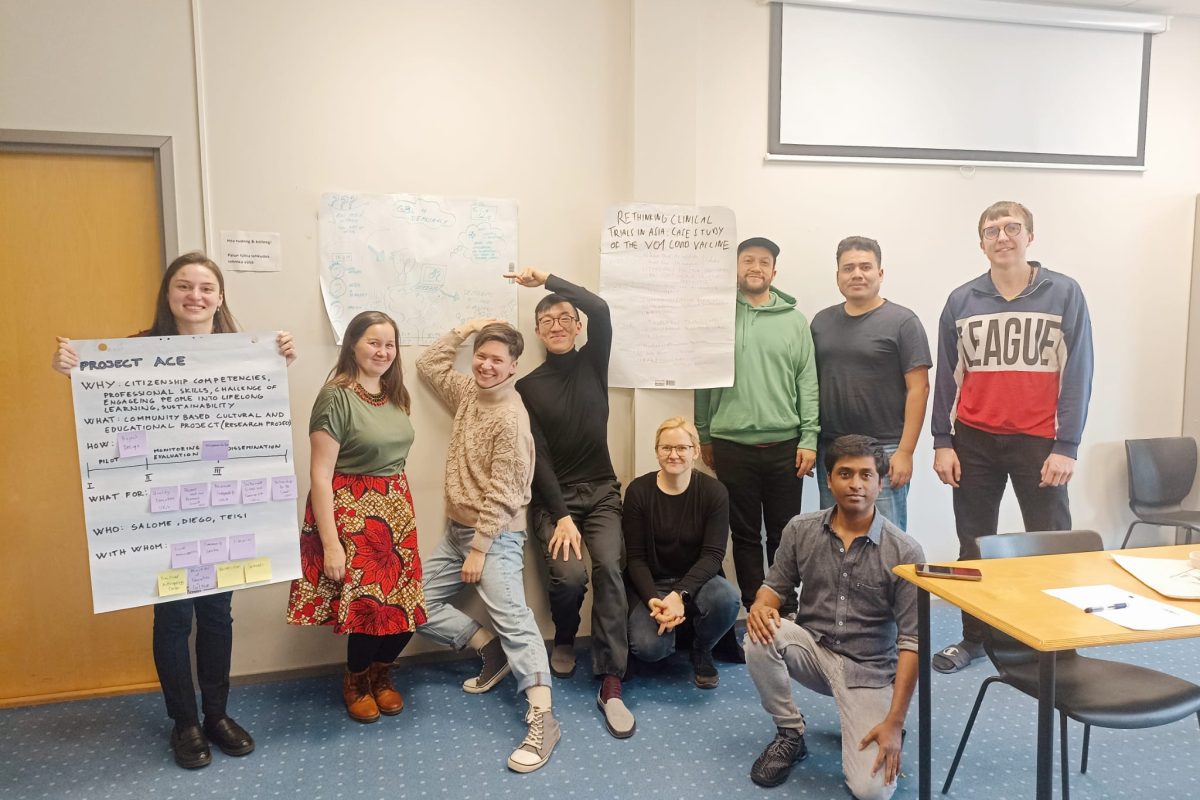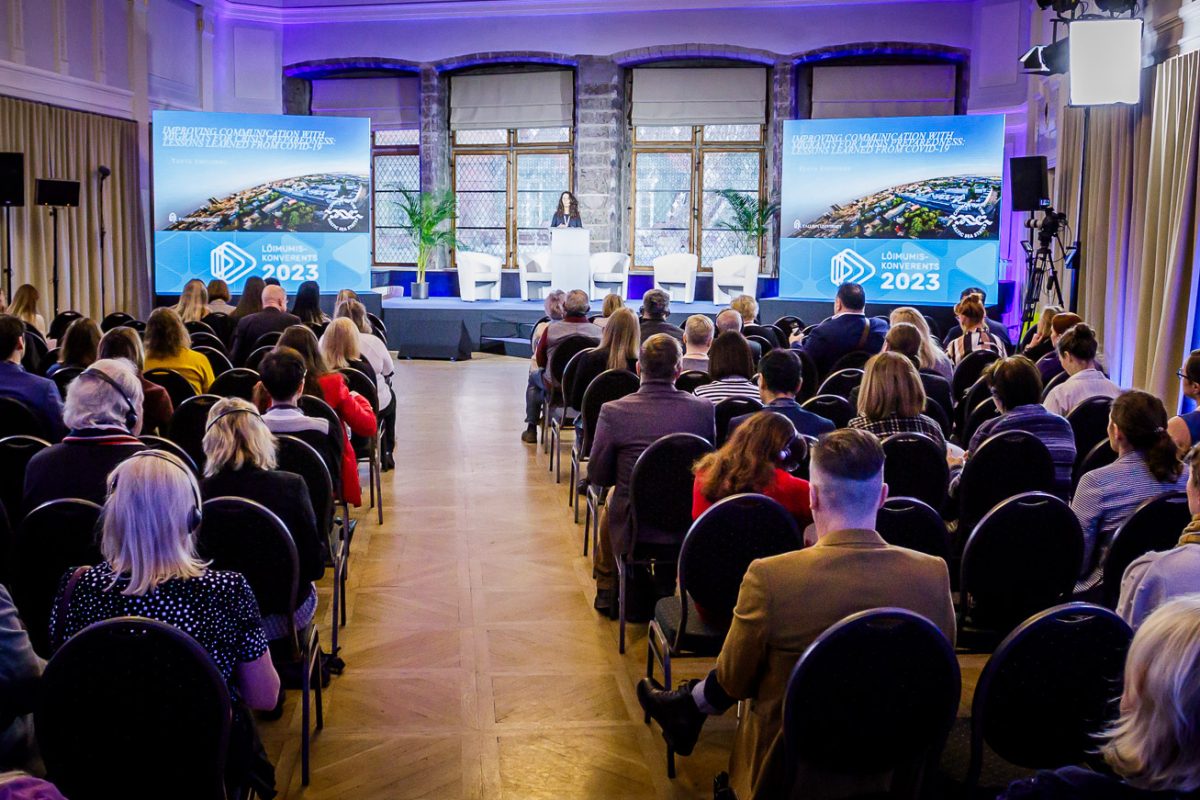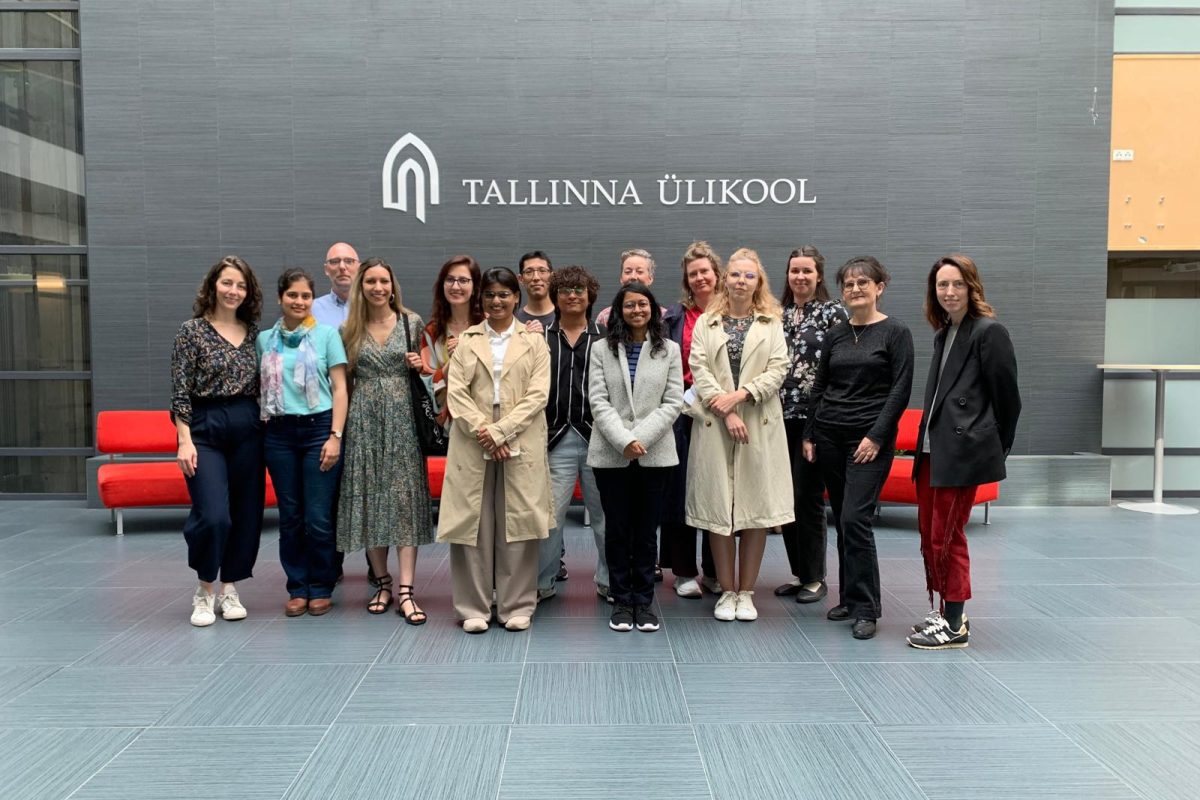In the constantly evolving landscape of academic research, it is becoming more and more evident how important entrepreneurial skills – such as effective communication, team management and environmental scanning – are for researchers. In response to this need, Tallinn University has introduced a new course entitled “Entrepreneurial Mindset for Junior Researchers” as part of the C-Accelerate project, curated and delivered by Tanya Escudero and Ulrike Rohn.
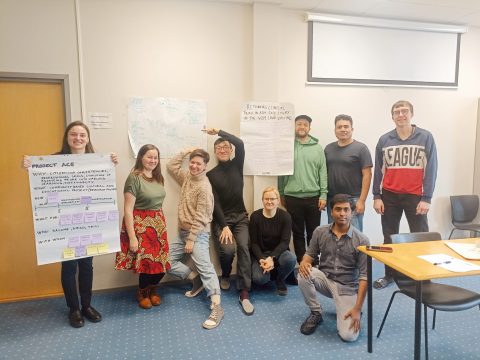
Course participants at TLU
Aimed at PhD students from a variety of disciplines, the course was designed to nurture an entrepreneurial mindset that would enable them to successfully navigate both academic and real-world challenges. The objectives of the course were threefold: firstly, to introduce junior researchers to entrepreneurial thinking; secondly, to guide participants in exploring their inner strengths and domain expertise for impactful contributions within and beyond academia; and thirdly, to encourage interdisciplinary interactions, collaborations and network development.
The timing for developing this course was particularly good. From September 2024, the PhD curriculum at Tallinn University will include a centrally delivered module on transferable skills across all schools and disciplines (offering short practical courses and workshops of 1-2 credits). By piloting this course in the spring semester of 2024, it has been possible to fully integrate it into the upcoming curriculum.
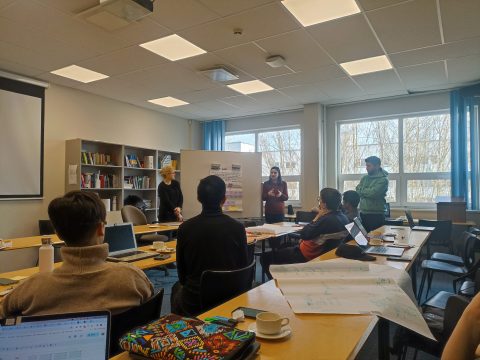
The course was structured into six two-hour sessions, most of which took place on consecutive weeks. Both lecturers were present at each session to encourage dialogue and create a dynamic environment. Students were asked to keep a self-reflective journal: each week, they responded to a question related to that session’s topic, which then served as the basis for further reflection in subsequent sessions.
Session 1: Theoretical Foundations
This first session served as an introduction to the course and key entrepreneurial concepts and terminology. Students applied entrepreneurial thinking to research contexts and engaged in discussions to deepen their understanding.
Session 2: Discovering the entrepreneurial self
With a focus on self-discovery, this session explored personality archetypes, inner strengths, resilience and values. An in-class self-reflection exercise encouraged students to identify their strengths, weaknesses and skills.
Session 3: Domain expertise
Students looked at their specific domains of knowledge and identified how their expertise fits within the framework of entrepreneurial competence. The session included activities to map domains and link personal strengths to domain expertise.
Session 4: Building your network
This session covered the basics of networking, including understanding different network roles such as collaborators, mentors and stakeholders. Students practised identifying their current and ideal networks to support their research projects and future endeavours.
Session 5: Impact on society
Participants considered how to integrate societal factors into their work, identifying strategies to increase their impact. The group exercise involved creating an impact canvas outline a project idea which combined their strenghts, knowledge, and networks and could potentially have a societal impact.
Session 6: Presentation and Wrap-up
The final session was dedicated to refining the impact canvas, presenting ideas and reflecting on the course. Feedback was collected to assess the outcomes of the course and to plan future iterations.
More information about the course and the feedback received at Tallinn University’s website.
About the trainers:
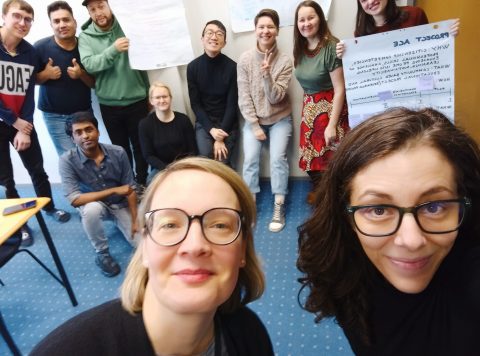
Tanya Escudero is a Research Fellow at the School of Humanities, working on topics related to communication with migrants and linguistic minorities. She is also Senior Adviser of Doctoral Studies at Tallinn University. She has curated, delivered and organized numerous trainings at TLU focusing on practical and transferable skills for PhD students. She is currently curating the new module on transferable skills at Tallinn University which will be implemented for the first time in 2024.
Ulrike Rohn is Professor of Media Management and Media Economics at the Baltic, Film, Media and Arts School (BFM). She is the co-Head of the Tallinn University Centre of Excellence in Media Innovation and Digital Culture (MEDIT), President of the European Media Management Association (emma), co-Editor of the Journal of Media Business Studies. Ulrike leads and is part of various research projects, including projects on entrepreneurship and media management.

